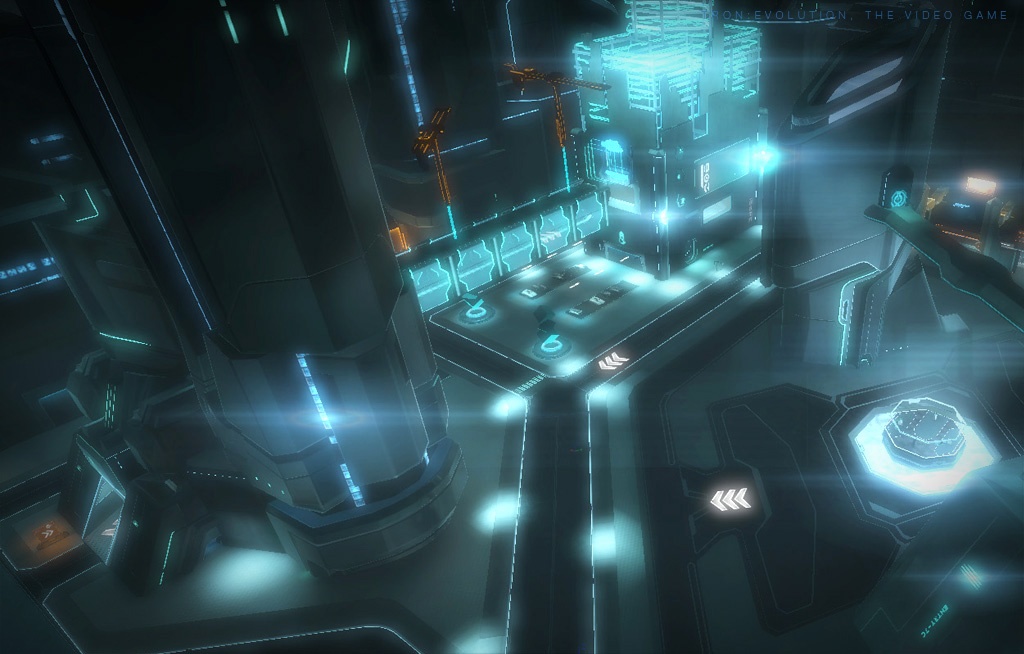Do Hardware Gimmicks Matter?
Tom Mc Shea explains why developers shouldn't force themselves to take advantage of every hardware-specific feature.
The Wii U is nothing if not flexible. Its compatibility with a wide assortment of controllers gives developers the freedom to create almost any game they have rattling around in their imaginations. With a touch screen nestled comfortably between an array of buttons and sticks, the included GamePad seamlessly melds traditional inputs with the ever-popular tablets. And if the game you want to create doesn't mesh with Nintendo's latest innovation, you're free to use the last-generation motion-and-pointing Wii Remote or the bells-and-whistles-free Pro Controller. And yet, Borderlands 2 is still not coming to the Wii U, and it's because of the fancy controller that's the core of the system.
In a recent interview with GameMasters, Gearbox CEO Randy Pitchford explained why the popular role-playing shooter won't arrive on Nintendo's console. "We get asked if there is going to be a Wii U version of Borderlands, and the reason why there's not is because we couldn't think of a natural, obvious, 'OMG, I want that for what the Wii U brings to the table' feature."
Now, there are a number of good reasons why Gearbox would be reluctant to bring the latest Borderlands to another system. Maybe the Wii U's comparably small user base limits the potential audience too much to be financially viable. Or Gearbox has finite resources and is already devoting much of its time and money to creating downloadable content on the other platforms. Plus, if you consider Nintendo's rocky online history, it would be understandable if Gearbox just didn't think it would be able to forge a connected experience worthy of the franchise's high standards. All of these problems are legitimate, and Gearbox would be wise to stay away if it felt strongly about any of them. But the reason Pitchford gave doesn't jibe with reality.
Developers waste time implementing questionable control methods and extraneous features to check every box.
Consider an upcoming Gearbox game that is coming to the Wii U. In the same interview, Pitchford talks about how natural a fit Aliens: Colonial Marines is for the GamePad. "But with Aliens, the first thing we thought was, 'Holy s***, I can have a motion controller in my hands!' When it's there in my lap it feels like I'm part of the movie." To summarize, using a map for Borderlands 2 wouldn't be "natural," but if you have a radar in your hands in Aliens, it's a "Holy s***" experience.
Let's just assume for a moment that Pitchford truly does believe that games must take full advantage of the myriad options available for each system. This is a troubling mindset that goes against the reason such flexibility exists in the first place. Instead of allowing developers to craft the best experience possible, it forces them to waste time implementing questionable control methods and extraneous features to check every box.
Diddy Kong Racing DS is a great example of a development team shoehorning control tweaks into a game that didn't need them, undermining the core racing in the process. To get a speed boost in the portable version, you need to blow into a microphone or scratch the touch screen, depending on what vehicle you're using, and that nonsense disrupts the responsive controls that defined the untainted original. Uncharted: Golden Abyss launched alongside the Vita, and it attempted to introduce you to the various features in Sony's latest handheld in a recognizable franchise. Unfortunately, moving the system back and forth to swing on a rope isn't remotely fun, so cramming in a different control scheme just to take advantage of a system's many abilities can be detrimental to the finished product.
This mindset is pervasive in the industry, and even though not every game is handicapped to the same extent as Diddy Kong Racing DS, it's still a problem that developers bring on themselves. Yelling "Grenade!" to throw an explosive frag in Halo: Combat Evolved Anniversary delighted watchers intent on griefing the player, but it had no practical application because there was a noticeable delay between the command and the onscreen action. And who thought it would be a good idea to make you blow into the GamePad's microphone for Donkey Kong Crash Course in Nintendo Land to make the elevator rise?
Then there are times when developers try to mix elements that actively contradict each other. As everyone is no doubt aware, the 3DS has a notoriously small viewing angle. If you shift your eyes or the system slightly, you mess up the 3D effect. And yet, you can steer Super Monkey Ball 3D by tilting the system. When logic is overwhelmed by feature creep, you have a hodgepodge of nonsense more concerned with back-of-the-box bullet points than entertainment.
As we move into the next generation of gaming, it's important for developers to heed the warnings of past failures. Game design is more than just throwing ideas at a wall and hoping something sticks. Instead of devoting time and resources to ensuring every feature of a system is used, focus on the core elements that make the game engaging and build around those ideas. There's no reason to bury the game under a pile of lousy concepts. Great games are more than a combination of gimmicks and novelty, so focus on making the experience as compelling as possible instead of dabbling in pointless distractions. As for Borderlands 2, if what Pitchford says is true, it's a shame that Wii U owners must miss out on a great experience simply because Gearbox felt that they couldn't let their game speak for itself.
Got a news tip or want to contact us directly? Email news@gamespot.com


Join the conversation